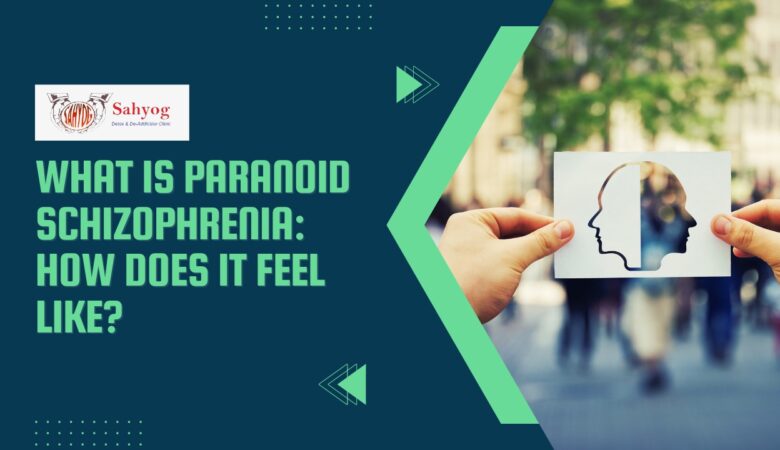What is Paranoid Schizophrenia: How Does it Feel Like?
Paranoid schizophrenia is a mental disorder that causes people to have delusions, hallucinations, and other signs of psychosis. It can be a very scary experience, and it’s important to understand what it feels like so that you can get the best possible care for yourself. In this article, we’ll explore some of the key symptoms of paranoid schizophrenia and how they feel to the person experiencing them. What is Paranoid Schizophrenia? Paranoid schizophrenia is a mental disorder characterized by extreme distrust of others and a persistent belief that they are being persecuted or threatened. In some cases, people with this mental disorder may also experience hallucinations or delusions. It can be extremely difficult to live with this condition, as people with this disorder often have a difficult time forming relationships and can be very isolationist. There is currently no cure for this disorder, but treatments can help manage the symptoms. One of the most common types of schizophrenia is called paranoid schizophrenia. People with this disease believe that others are out to get them, and they often have trouble trusting other people. They may also have false beliefs about their own appearance or abilities. People with paranoid schizophrenia often have difficulty functioning in society, and may struggle with jobs or relationships. They may also be at increased risk for suicide. What are the Symptoms of Paranoid Schizophrenia? A person with this disorder may experience a wide range of symptoms, which can include: The person may feel that they are being watched or persecuted. The person may have a strong suspicion that others are plotting against them, or that people around them are up to no good. The person may be very anxious and tense, and find it difficult to relax. The person may have difficulty forming relationships, as they become suspicious of everyone around them. The person may experience hallucinations – seeing or hearing things that don’t actually exist. Something More About The Symptoms The hallmark symptoms of paranoid schizophrenia are a sense of suspicion and fear, as well as a distressing overestimation of these feelings. People with this mental disorder often see sinister plots behind everyday events or believe they are being targeted by unknown forces. People with this disorder also experience a great deal of cognitive dysfunction, including difficulties with thinking logically, making decisions, and organizing their thoughts. This can lead to social isolation and difficulty finding employment. It is a severe mental disorder that affects about 1% of the population. It is typically diagnosed in late adulthood, although it can occur at any point in life. Treatment typically involves medications and therapy. What are the Causes of Paranoid Schizophrenia? Schizophrenia is a mental disorder that causes people to have problems with their thoughts and feelings. It can be difficult to understand what it feels like to have this condition, but here are some things people with schizophrenia may experience: Being distrustful of others Having trouble controlling your thoughts and actions Having a strong belief that you are being watched or persecuted Having a lack of understanding of reality Having a strong sense of self-doubt Reason Behind The Causes Paranoid schizophrenia is thought to be caused by a combination of genetic and environmental factors. Genetics may play a role in how easily the disorder develops, while environmental factors may contribute to the severity of symptoms. Some people with this mental disorder experience hallucinations (seeing things that are not really there) or delusions (false beliefs). These characteristics can make life very difficult for the individual, as they may feel constantly under threat from others. How Does Treatment for Paranoid Schizophrenia Work? Paranoid schizophrenia is a serious mental disorder that affects how a person thinks, feels, and behaves. It is characterized by delusions (false beliefs) and hallucinations (seeing things that aren’t really there). Treatment for this disorder usually involves medication and therapy. Medications can help reduce the symptoms of the disorder. Therapy can help someone learn coping mechanisms and healthy behaviors. Overall, treatment for this type of schizophrenia aims to improve a person’s quality of life. What Are the Long-Term Effects of Paranoid Schizophrenia? There are a few long-term effects of paranoid schizophrenia that people often experience. These include: difficulty forming relationships, feeling isolated, and having a difficult time finding a job. Additionally, people with this disorder often experience a decreased ability to think critically and make decisions. These difficulties can lead to problems in both personal and professional life. How Can I Avoid Developing Paranoid Schizophrenia? If you’re like most people, you’ve probably heard about paranoid schizophrenia but don’t really know what it is. So, what is it, and how does it feel? It is a serious mental illness that affects the way someone thinks and feels. People with this condition may become very suspicious of others, believe they are being watched or followed, and experience hallucinations (seeing things that aren’t there). They may also have trouble communicating with others and be very agitated. In some cases, paranoid schizophrenia can be life-threatening. So, if you’re ever feeling off in your head or worried about your safety, make sure to talk to your doctor. And remember: even if you don’t have paranoid schizophrenia, you can still get psychiatric illness. So it’s important to keep your mental health in check no matter what. Final Words The blog section for the article “What is Paranoid Schizophrenia: How Does it Feel Like?” provides final thoughts and information about paranoid schizophrenia. People with this condition experience a lot of fear and distrust of others, which can make everyday tasks extremely difficult. Symptoms may include hallucinations, delusions, and a lack of trust in reality.

